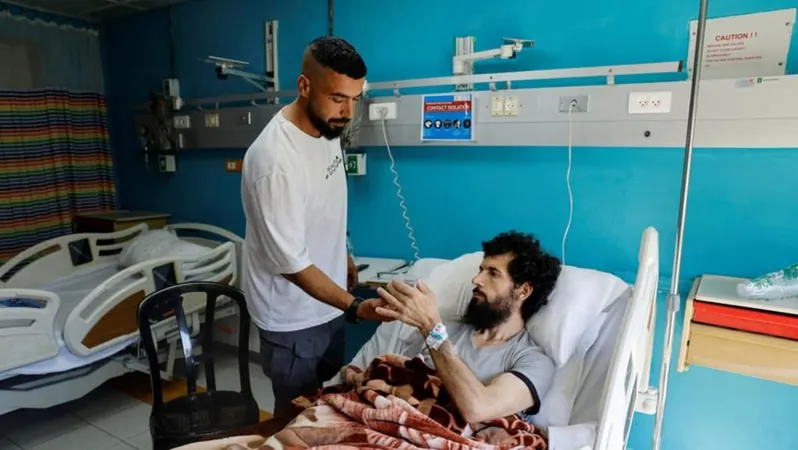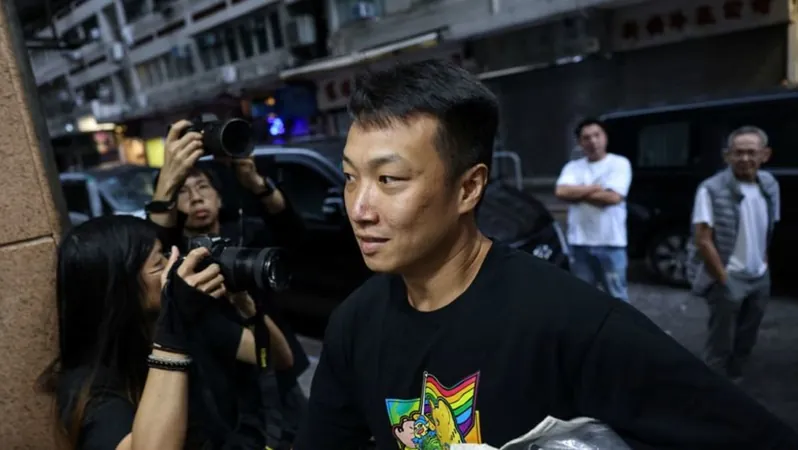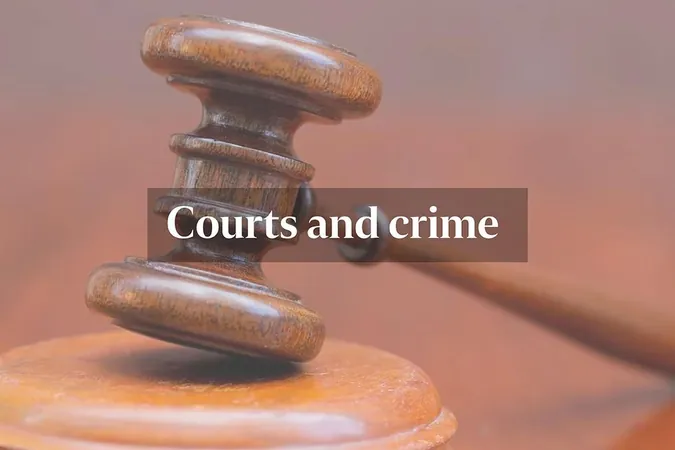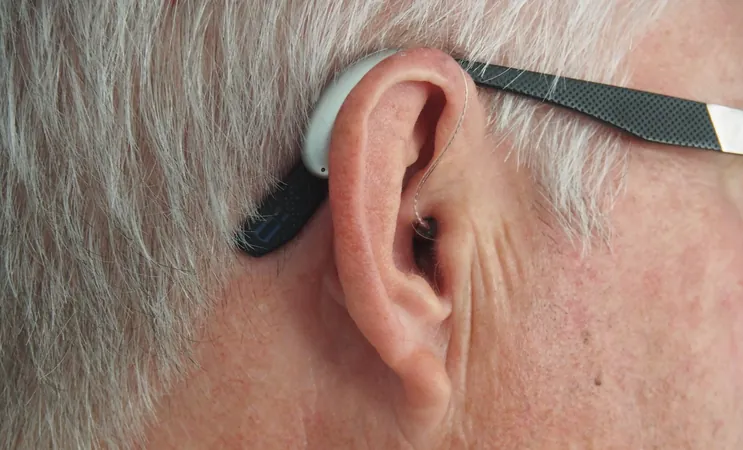
Deep Scars of Injustice: The Harrowing Experiences of Palestinians Released from Israeli Jails
2024-12-31
Author: Nur
Introduction
In the tumultuous backdrop of the ongoing Israel-Palestine conflict, the plight of Palestinian detainees continues to draw international scrutiny. Recent reports reveal harrowing experiences faced by many Palestinians upon their release from Israeli jails, where they endured severe mistreatment that left them with lasting mental and physical scars.
Case Study: Moazaz Obaiyat
One poignant example is Moazaz Obaiyat, a 37-year-old father of five and once a muscular bodybuilder. After a grueling nine-month period of detention, Obaiyat emerged unable to walk unaided, a stark contrast to his previous athletic physique. Initially released in July, he had been diagnosed with severe PTSD due to the torments he faced at Ktz'iot prison, with medical notes indicating he experienced "physical and psychological violence and torture."
Implications of Detentions
As the world watches the efforts for a ceasefire, a potential deal could see thousands of Palestinian detainees released in exchange for Israeli hostages held by Hamas. However, many of these former inmates will likely require extensive medical care. Qadoura Fares, the head of the Palestinian Commission for Detainees and Ex-Detainees Affairs, made it clear that the ramifications of their treatment are profound and enduring.
Escalating Violence and Detainee Numbers
The situation escalated after the escalation of violence following Hamas's attacks on October 7, 2023, which led to mass detentions. Reportedly, more than 10,000 Palestinians are currently incarcerated in Israel and the West Bank, with cases of abuse emerging at military detention camps such as Sde Teiman, notorious for alleged human rights violations, including reports of torture and sexual abuse.
Human Rights Violations
Human rights organizations have documented alarming practices in Israeli detention facilities. A United Nations investigation highlighted widespread claims of torture, psychological trauma, and sexual violence against detainees. These reports have drawn condemnation from global leaders, including the White House, which called the accounts of abuse "deeply concerning."
Israeli Response to Allegations
On the Israeli side, the military has launched investigations into claims of risk to Gazan detainees but has categorically denied systematic abuse within its facilities. The official response emphasized that prisoners are afforded living conditions compliant with legal standards, dismissing the term "summer camp" used earlier by critics to describe the detentions.
Experiences of Other Detainees
This systemic cycle of trauma was echoed in the accounts of other detainees, who described beatings, food deprivation, and sleep deprivation as part of their treatment. These reports align with findings from various human rights advocates who have highlighted the enduring psychological impact torture inflicts not only on victims but also on their families. Tal Steiner, director of the Public Committee Against Torture in Israel, warned that the long-term effects of such abuse on Palestinian society could be devastating and far-reaching.
Fadi Ayman Mohammad Radi's Account
Amid these harrowing narratives, 21-year-old Fadi Ayman Mohammad Radi recounted his own ordeal at Sde Teiman, where he spent four months shackled and under constant physical duress. He described a chilling environment where he was subjected to extensive abuse without formal charges or trials, leaving him psychologically scarred and struggling to cope with painful memories.
Conclusion
As the international community continues to seek resolutions to this protracted conflict, the stories of individuals like Obaiyat and Radi serve as a stark reminder of the human cost of a fractured system. With thousands of detainees still in limbo, the need for accountability and reform in detention practices is becoming increasingly urgent—now is the time for the world to pay attention and demand change before more lives are irrevocably altered.



 Brasil (PT)
Brasil (PT)
 Canada (EN)
Canada (EN)
 Chile (ES)
Chile (ES)
 Česko (CS)
Česko (CS)
 대한민국 (KO)
대한민국 (KO)
 España (ES)
España (ES)
 France (FR)
France (FR)
 Hong Kong (EN)
Hong Kong (EN)
 Italia (IT)
Italia (IT)
 日本 (JA)
日本 (JA)
 Magyarország (HU)
Magyarország (HU)
 Norge (NO)
Norge (NO)
 Polska (PL)
Polska (PL)
 Schweiz (DE)
Schweiz (DE)
 Singapore (EN)
Singapore (EN)
 Sverige (SV)
Sverige (SV)
 Suomi (FI)
Suomi (FI)
 Türkiye (TR)
Türkiye (TR)
 الإمارات العربية المتحدة (AR)
الإمارات العربية المتحدة (AR)